Strad readers submit their problems and queries about string playing, teaching or making to our experts

Should a young beginner violinist ever have more than one teacher during the early stages of their development? Three experienced pedagogues advise a tutor who has exactly this dilemma
Do you have a burning question about string playing, teaching or making that you need answering by people who really know? Email us at thestrad@thestrad.com.
The dilemma I’ve been teaching a young beginner for several months, but now that she has started school, her parents are keen for her to have lessons with one of the tutors there. However, they are still prepared to continue sending her to me as well, as she seems to respond well to my tuition and they think that having two teachers instead of one can only be a good thing. I’m not sure, though; at her age, would she be confused by having two of us offering her advice instead of one? Might we give conflicting information? And for how long do you think we should keep this experiment going? ALESSIA SCOGNAMIGLIO, NAPLES, ITALY
HELEN BRUNNER This is an interesting question, and I suspect that this situation happens a lot more often than we think. We should admire these parents’ unusual honesty in discussing this with their home teacher. Clearly, they want the best for their child, but we need to explain to them why we think this is unlikely to work out.
Although with more advanced teenagers it could be advantageous to have separate technique classes, masterclasses or coaching sessions from different teachers, you are right to be concerned that it might be confusing for a beginner. Even if we are all trying to teach the same thing in the same way, of course we use different words and images. Little children cannot easily assimilate learning the violin from two different sources.
It sounds as if the parents of this pupil have been taking part in her private lessons, but presumably they would not be able to participate in what goes on at school. I would hope that any young beginner will have been given such clear instructions for home practice that having a second teacher would never be an advantage.
I once had a ten-year-old in my studio and I discovered he had also been studying at the junior department of the Royal College of Music (RCM). I noticed some real confusion in the lesson with his scales. There were some changes of fingering in his book, and I suspected another teacher’s hand, but the child had been told by his parents to keep the RCM a secret. The trust was broken between us, so I had to ask them to leave.
However, I have a lovely seven-year-old studying with me who is taking part in a school violin ensemble at the same time. The mother has been completely up front about it to us both, and as the schoolteacher uses my pupil as her ‘helper’, it all seems to work beautifully. The adage ‘If it ain’t broke, don’t fix it’ could apply here.
KATHY BLACKWELL This young pupil sounds engaged in the process of learning the violin and clearly has parental support. The parents might feel that having two teachers will mean that progress will be twice as fast, but this may not necessarily follow. Approaches to teaching beginners can be quite different from teacher to teacher: some may introduce notation sooner than others, for example, while others prefer to prioritise bowing skills ahead of left-hand technique. So unless the two teachers are on the same page with their approach, the experience could be very confusing for the young beginner. Children have many demands on their time and if the child is expected to learn different pieces with each teacher, it’s unlikely that it would be a happy or successful experience for all involved.
An alternative way to build on violin lessons would be for the child to get involved in other musical activities at school or elsewhere. Taking part in a school ensemble is, of course, very beneficial: to play along with your peers can normalise the learning of an instrument, and also build confidence and social skills. The parents may be looking for just this opportunity for their child. Joining an appropriate ensemble is highly recommended at any level, and if there is a suitable group for this beginner to join, this could provide a valuable ensemble experience. Having an individual lesson and complementing it with an ensemble at school would be preferable to having two different teachers. If the parents insist, then everyone involved should be fully aware of the situation and discuss what can realistically be expected from the child.
KAY TUCKER It’s not necessarily a bad thing for a student to have two teachers for a period of time, provided that the teachers are working together in respectful co-operation for the benefit of the student. I experienced having two teachers when I was between 18 and 20, who worked beautifully as a team and at a crucial time in my journey would consult with each other over the weekend by phone to discuss what they were going to do next with me! The important thing is that both teachers advised me to speak up if one of them said something which appeared to be in conflict with the teaching of the other.
However, I couldn’t help wondering why the parents of your beginner want her to have two teachers. It doesn’t appear from your letter that it is a matter of convenience to use the teacher at school and it seems that they clearly appreciate the good relationship you have with their child. Does the other teacher know about this arrangement and if so, how do they feel about it? I wondered if the parents themselves are not as aware as they might be of the dangers of conflicting advice or differing use of language which could cause confusion in such a young student.
The early stages of learning to play are so important and if there is no communication or co-operation between the two teachers it is highly likely at some point that there will be confusion and misunderstanding on the part of the student. It’s then not fair for the poor student to work out whose advice he or she should be taking! The worst-case scenario is that the student becomes confused and wants to give up.
Helen Brunner is the current UK country director for the European Suzuki Association: www.europeansuzuki.org
Kathy Blackwell is the co-author of Fiddle Time and other string books published by Oxford University Press: www.kathyanddavidblackwell.co.uk
Kay Tucker is a cellist, teacher, adjudicator and founder of the Stringbabies teaching method: www.stringbabies.com
Read: Ask the Experts: should string teachers use fingerboard stickers for beginner pupils?
Read: Ask the Experts – how to teach a group of violin students


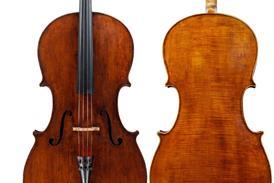

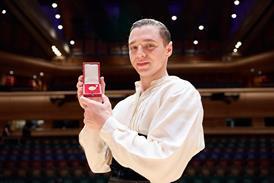
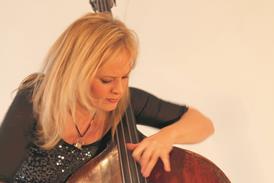
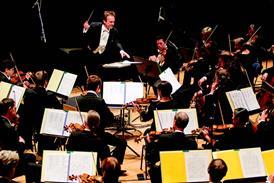
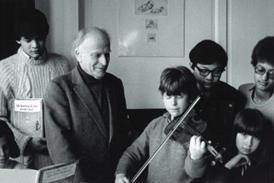

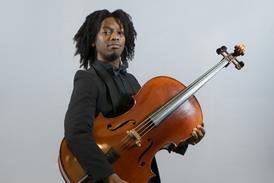

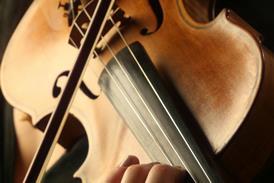
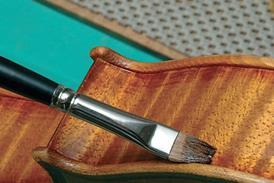

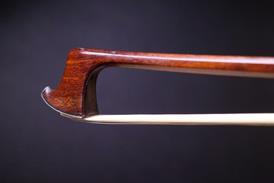











No comments yet